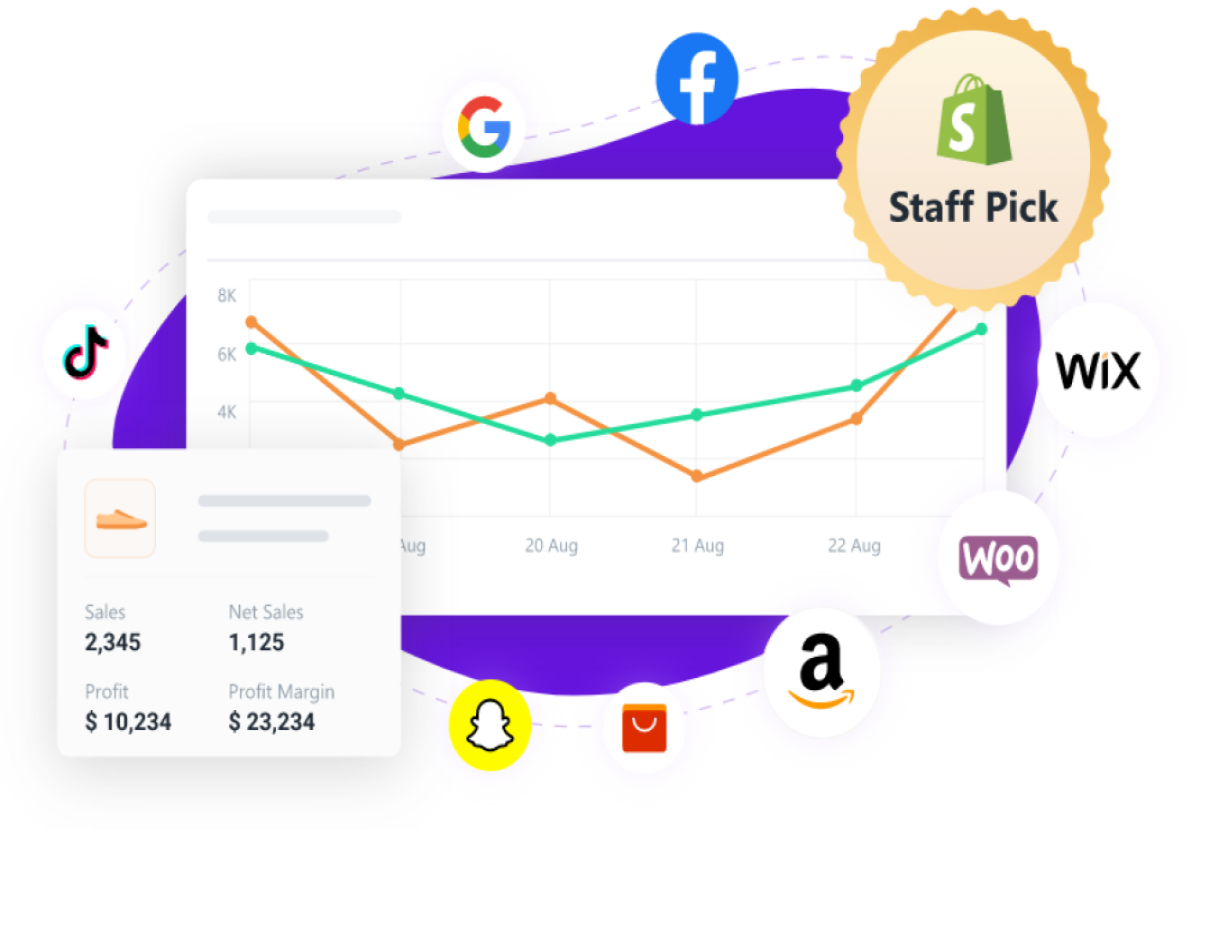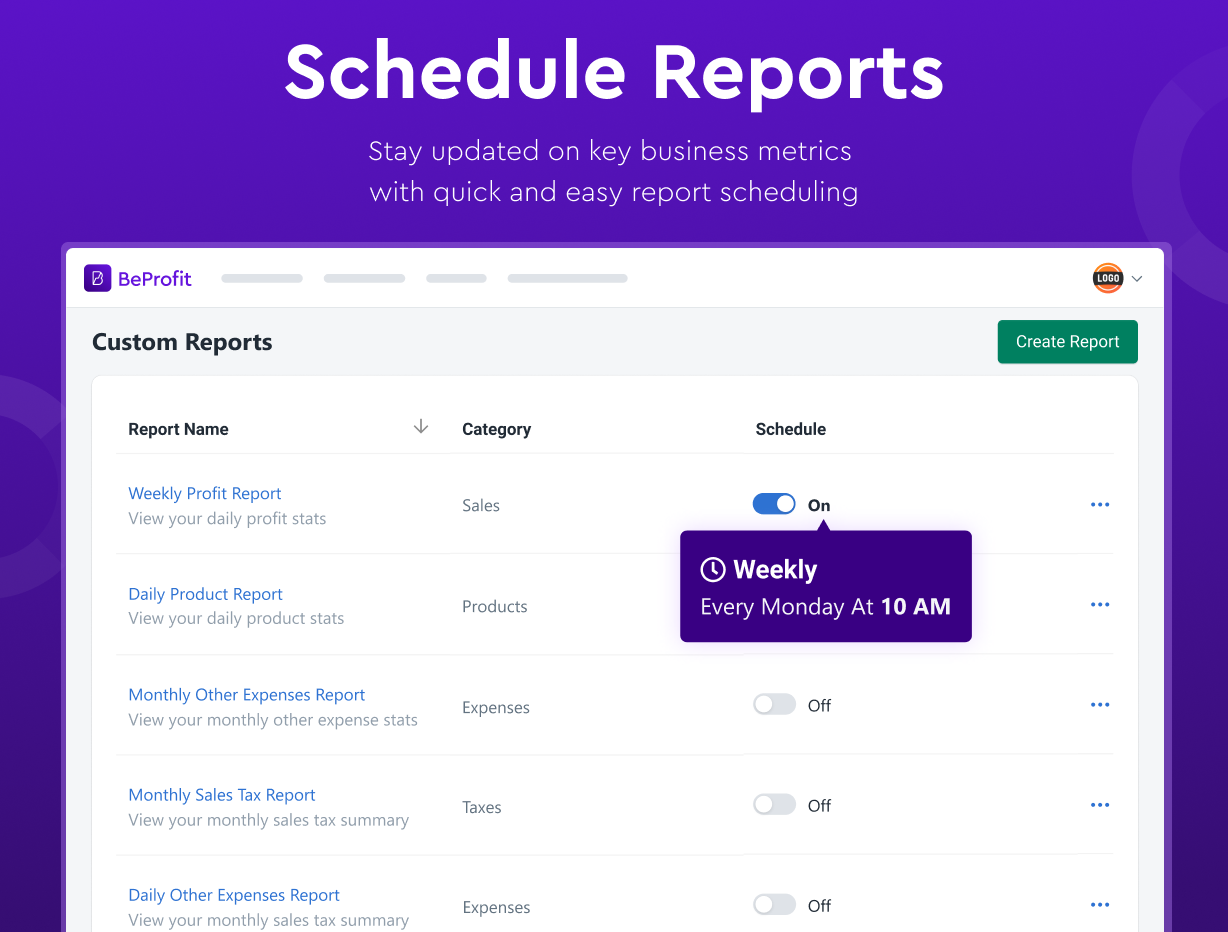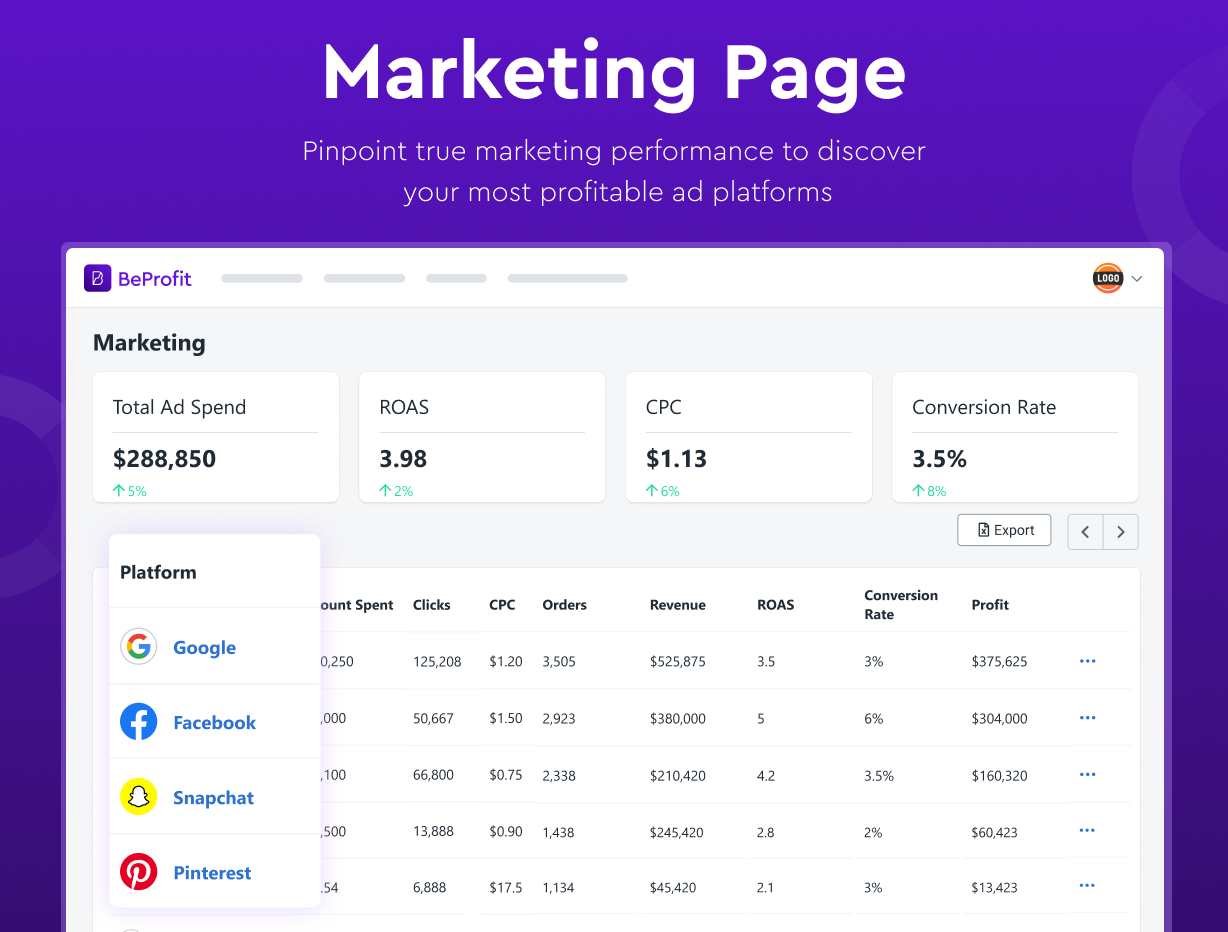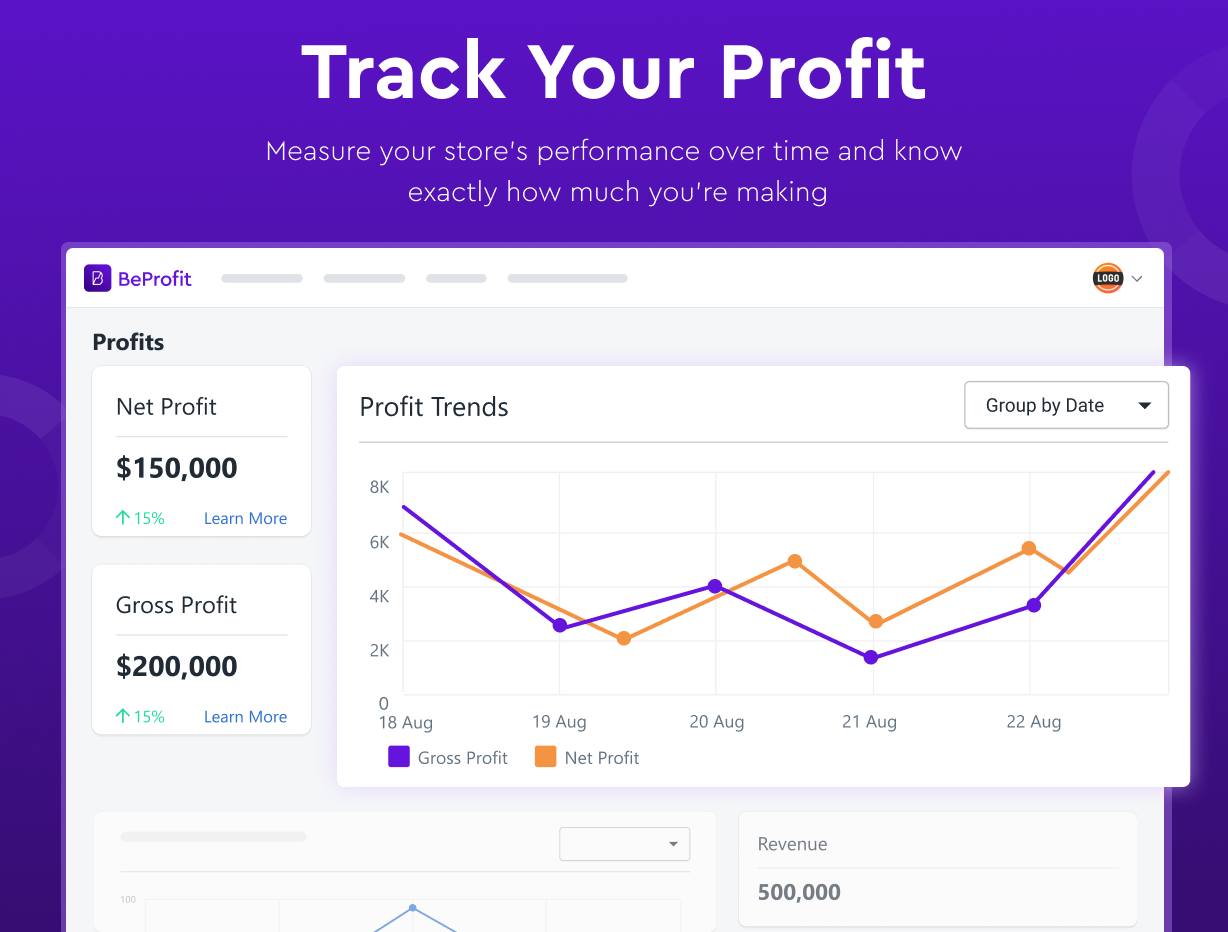Calculating CTR For Beginners: Formulas, Guides & Examples
Updated May 5, 2023

Click-through rate (CTR) is an essential metric that can help businesses evaluate their advertising campaigns' performances. Depending on the industry and platform, CTR averages can vary. For example, Wordstream shares that business services' paid search CTR average is 5.17%, whereas apparel has a 2.24% average CTR. So, this metric should be treated as more of a guideline than a definitive benchmark. Understanding your CTR can also provide insight into revenue and profits by highlighting how effectively you're utilizing your marketing budget.
Understanding CTR
CTR measures the engagement of online ads and other digital content, such as emails or website pages. To understand this engagement's correlation to revenue, you would need to also calculate metrics like conversion rate, cost-per-click (CPC), and others.
CTR can be analyzed by subsections, such as micro conversions, search ads, and display ads. Each of these could provide different results, which can offer data for comparison to find from which ad type, for example, you garner the most conversions.
Why Should You Track CTR?
Tracking your CTR allows you to understand your marketing strategies' strengths and weaknesses. It can help better your business with:
- Increased conversions - Knowing where your campaigns are successful can help you identify and utilize effective techniques more widely, resulting in higher interaction and conversions.
- Insight into marketing campaigns - This can guide you to points in your campaigns that need optimization or costs that should be cut. By tracking CTR, you can better understand user behavior and, therefore, tweak your marketing approaches for better conversion and customer retention.
- Improved ROI - With a better understanding of your marketing campaign, you can increase the chances of users completing sales actions and the likelihood of turning profits.
Track Profits From Your Marketing Conversions
Automatically integrate your advertising data and easily track sales profits.




- UTM-based tracking allows you to analyze and optimize all engagement from social media to ad campaigns.
- Get an aggregated view of your business performance.
- Accessible on mobile and desktop devices for real-time team collaboration.
BeProfit offers a customizable platform to track your advertising performance using key metrics.
» Looking to do some CTR manipulation? Here are 5 expert tools and techniques
How to Calculate CTR
CTR is the ratio of clicks to the number of users who viewed the page, email, or advertisement. Some metrics to decide between before doing any calculations are unique clicks and overall clicks. If you want to categorize every time the same user clicks on the same link as one click, that's considered a unique click. Whereas overall clicks count every click, even on the same link and by the same user, as numerous clicks.
Aside from industry benchmarks as a guideline, it's worth having your own benchmarks so you can measure your improvement from one period to the next. Although the CTR can vary based on platform, content, and channel, calculating it uses the same method and should be done at regular periods.
CTR (%) = (Clicks / Impressions) x 100
Example of a Good CTR
CTR (%) = (Clicks / Impressions) x 100
= (75 / 3,000) x 100
= 2.5%
In this example, a call-to-action (CTA) button in an email campaign had a CTR of 2.5% Because email marketing CTR averages at 2.3%, this result is positive. This high CTR may have been achieved through extensive user behavior analyses or retargeting to ensure it was reaching people more likely to be interested. Successfully reaching a desired target audience can help businesses assess their marketing prowess and retain customers, which can improve conversion and help maximize profits.
» Want to know more? Here's how email marketing practices can improve your ROI
Example of a Poor CTR
CTR (%) = (Clicks / Impressions) x 100
= (50/10,000) x 100
= 0.5%
With the average CTR for Facebook ads at 1.4%, this example of a display ad that appears on Facebook feeds shows a low CTR. This may be a result of poor ad type selection, weak copy, and inefficient audience targeting, among other practices. This highlights how lower CTRs can cause businesses to lose out on potential conversions that could, in turn, lead to wasted costs with little to no ROI.
Ways to Improve Your CTR
Using data insights from tracking your CTR, and other metrics can inform new ways to use that can optimize CTR. Some of these ways include:
- Personalization - This includes web personalization, which targets your potential customers' specific interests and fosters a familiarity that can encourage engagement and loyalty.
- CTAs - By implementing CTAs for more strategic direction and redirection, you can increase the opportunity for users to visit specific pages or product pages.
- Retargeting - You can leverage social retargeting. This creates display pop-ups when a user interacts with your social content through likes or comments.
- Improve Ad Copy - Performing keyword research, rewriting, and making use of images and video marketing can optimize your ad copy with data-driven adjustments that can help drive engagement.
- A/B Testing - Testing various versions of an ad and comparing the metrics can highlight more precise areas of your ad that resonate best with users. You can use this insight and apply it to other ad campaigns for an improved CTR.
» Discover steps to build a successful hybrid e-commerce marketing campaign
Leverage Your CTR to Help Increase Conversions
CTR is a key metric in understanding the success or failure of any given digital marketing campaign. Analyzing which platforms, techniques, and ad types are most successful, and which target audiences are most responsive to certain campaigns, can aid businesses to optimize their strategies for increased sales and profit-driving conversions.
That's where BeProfit comes in. With a customizable dashboard that can easily track your profits and integrate your advertising data for real-time monitoring, you can focus more on spearheading informed strategies to continually improve your CTR.








